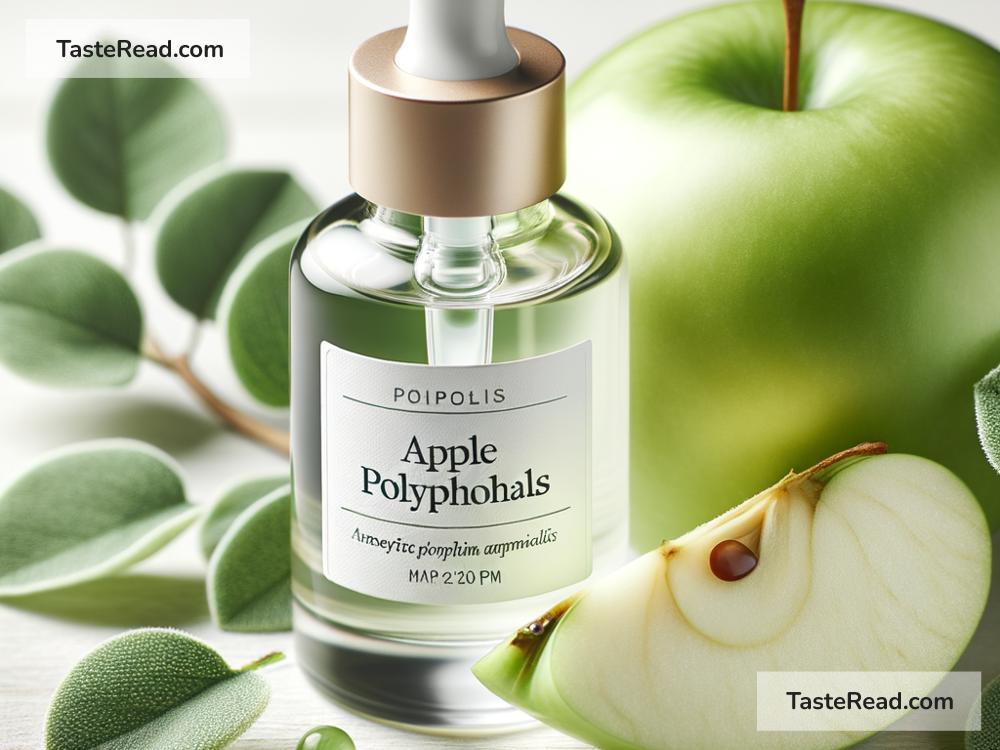Apple Polyphenols: A Natural Boost for Skin Rejuvenation and Anti-Aging
When it comes to skincare, most people look for effective ways to maintain glowing, youthful-looking skin. While there are plenty of creams, lotions, and treatments out there, nature’s wonders often provide unique solutions. One of these wonders is apple polyphenols—powerful compounds found in apples that are showing real promise for skin rejuvenation and anti-aging. Let’s dive into what apple polyphenols are, how they work, and why they might be your skin’s new best friend.
What Are Apple Polyphenols?
Polyphenols are natural plant compounds with antioxidant properties. They are abundant in fruits, vegetables, tea, wine, and—you guessed it—apples! Apples contain a variety of polyphenols, such as flavonoids, catechins, quercetin, and chlorogenic acid. These compounds help protect the fruit from environmental stress and pests. Interestingly, they may also offer similar protective benefits to human skin.
Apple polyphenols are found mainly in the skin of the apple. So, the next time you snack on an apple, remember that its skin isn’t just tasty—it’s packed with beneficial nutrients for your body, including your skin.
How Apple Polyphenols Help Rejuvenate Skin
Our skin goes through a lot of wear and tear every day. Pollution, UV rays from the sun, and natural aging can lead to wrinkles, fine lines, and dullness. Apple polyphenols work as powerful antioxidants that help counteract these stressors. Here’s how they benefit your skin:
1. Fighting Free Radicals
Free radicals are unstable molecules produced by environmental damage, poor diet, and even stress. They can break down collagen and cause skin to age faster. Apple polyphenols neutralize free radicals, reducing oxidative stress and protecting your skin from premature aging.
2. Boosting Collagen Production
Collagen is a protein that keeps your skin firm and elastic. As we age, collagen production slows down, leading to sagging skin and wrinkles. Studies suggest that apple polyphenols can stimulate collagen production, helping to maintain smoother and firmer skin over time.
3. Reducing Inflammation
Inflammation can make your skin appear red, puffy, or irritated. Apple polyphenols have anti-inflammatory properties, meaning they can calm skin and reduce redness. This makes them great for people with sensitive skin or conditions like acne and eczema.
4. Hydrating and Soothing
Apples are rich in water and nutrients that can soften and hydrate your skin. When applied topically, apple polyphenols can help retain moisture, making your skin look supple and fresh.
5. Brightening Skin Tone
Ever noticed how dull your skin can look after a long day? Apple polyphenols contain compounds that brighten and even out your skin tone. They can help fade blemishes and improve your skin’s overall appearance.
Why Apple Polyphenols Are Ideal for Anti-Aging Treatments
As we age, our skin naturally undergoes changes—from wrinkles and dryness to loss of elasticity. Anti-aging products aim to slow down these processes, but not all treatments are created equal. Apple polyphenols stand out because they work naturally with your skin. Here’s why they’re ideal for anti-aging:
Gentle on Skin
Apple polyphenols are derived from a fruit, making them safe and gentle for most skin types. Unlike harsh chemicals that can cause irritation, these compounds are mild yet effective.
Versatile Use
You can find apple polyphenols in various skincare products, including serums, moisturizers, masks, and even oral supplements. Some people also use DIY apple-based treatments, such as mixing apple puree with honey for a homemade face mask.
Backed by Science
Numerous studies have demonstrated the antioxidant and anti-aging effects of apple polyphenols. For example, one study found that applying apple polyphenol extract improved skin elasticity and hydration in participants after just a few weeks.
Environmentally Friendly
Apple polyphenols are often sourced from apple peels, which means they use parts of the fruit that might otherwise go to waste. This makes them an eco-conscious ingredient for modern skincare.
How to Incorporate Apple Polyphenols Into Your Skincare Routine
Adding apple polyphenols to your routine doesn’t have to be complicated. Here are a few ideas to get started:
1. Use Skincare Products with Apple Extracts
Look for creams, serums, or masks that mention apple polyphenols, fruit enzymes, or apple extracts on the ingredient list.
2. Try DIY Apple Masks
Puree a fresh apple and mix it with yogurt or honey to create a soothing, antioxidant-rich face mask. Keep the mask on for 10–15 minutes before rinsing with warm water.
3. Take Apple Polyphenol Supplements
Some people opt for oral supplements rich in apple polyphenols to support skin health from the inside out. Always check with a healthcare professional before starting new supplements.
4. Pair with Other Natural Ingredients
Apple polyphenols work well with other natural skincare ingredients, such as vitamin C, aloe vera, and hyaluronic acid. Combining them can enhance their overall benefits.
Are There Any Side Effects?
Apple polyphenols are generally safe for most people, but everyone’s skin is different. If you’re using skincare products with apple extracts, make sure to patch-test them first to rule out potential allergies. If you’re taking oral supplements, follow the recommended dosage on the label or consult a healthcare provider.
Final Thoughts
Apple polyphenols are quickly gaining recognition in the world of skincare, and it’s easy to see why. They provide a natural way to combat aging, rejuvenate your skin, and protect it from everyday damage. Whether you incorporate them through professional skincare products, DIY masks, or supplements, apple polyphenols can give your skin the care and attention it deserves.
So the next time you’re enjoying an apple, remember: this humble fruit offers far more than a tasty snack. It might just be the key to youthful, radiant skin!


